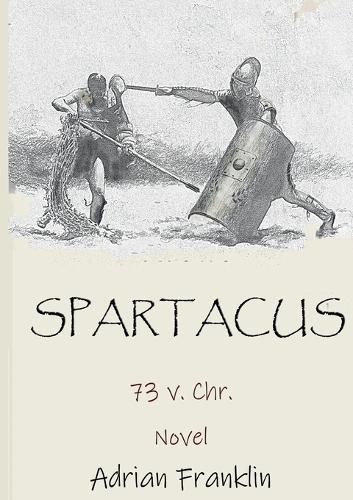Readings Newsletter
Become a Readings Member to make your shopping experience even easier.
Sign in or sign up for free!
You’re not far away from qualifying for FREE standard shipping within Australia
You’ve qualified for FREE standard shipping within Australia
The cart is loading…






This title is printed to order. This book may have been self-published. If so, we cannot guarantee the quality of the content. In the main most books will have gone through the editing process however some may not. We therefore suggest that you be aware of this before ordering this book. If in doubt check either the author or publisher’s details as we are unable to accept any returns unless they are faulty. Please contact us if you have any questions.
Prologue "...some are marked out for subjection... he, who is by nature not his own but another's man, is by nature a slave; and he may be said to be another's man who, being a human being, is also a possession." Aristotle, Politics, 1254b1-21. Year 73 B.C. Nothing foretold an uprising when a small group of gladiators managed their escape from the school in Capua.Rapidly develops a wildfire, spreading across the entire land. Under the leadership of the Thracian Spartacus, they defeated the Roman legions time and time again, - forces renowned for their victories across the known world. Advanced as far as the Alps they did, before turning south once more in a bid to escape the peninsula Spartacus, a Thracian, not really tangible from the mists of history, - compared to Hannibal or Alexander, there are hardly any written records about him. Hannibal is, above all, the battle of Cannae. Spartacus has no recorded battle that eclipses all others, no crossing of the Alps, only a tale told in familiar strains, shaped more by legend than by history. This novel attempts to portray the uprising as, -The Attempt Of The Impossible. The film Blade-Runner (despite a completely different genre) has been a blueprint for the form of making the impossible, subtly, visible. There is no similarity to the plot, or the characters, it is the form/idea of depicting the impossibility of an undertaking.
$9.00 standard shipping within Australia
FREE standard shipping within Australia for orders over $100.00
Express & International shipping calculated at checkout
Stock availability can be subject to change without notice. We recommend calling the shop or contacting our online team to check availability of low stock items. Please see our Shopping Online page for more details.
This title is printed to order. This book may have been self-published. If so, we cannot guarantee the quality of the content. In the main most books will have gone through the editing process however some may not. We therefore suggest that you be aware of this before ordering this book. If in doubt check either the author or publisher’s details as we are unable to accept any returns unless they are faulty. Please contact us if you have any questions.
Prologue "...some are marked out for subjection... he, who is by nature not his own but another's man, is by nature a slave; and he may be said to be another's man who, being a human being, is also a possession." Aristotle, Politics, 1254b1-21. Year 73 B.C. Nothing foretold an uprising when a small group of gladiators managed their escape from the school in Capua.Rapidly develops a wildfire, spreading across the entire land. Under the leadership of the Thracian Spartacus, they defeated the Roman legions time and time again, - forces renowned for their victories across the known world. Advanced as far as the Alps they did, before turning south once more in a bid to escape the peninsula Spartacus, a Thracian, not really tangible from the mists of history, - compared to Hannibal or Alexander, there are hardly any written records about him. Hannibal is, above all, the battle of Cannae. Spartacus has no recorded battle that eclipses all others, no crossing of the Alps, only a tale told in familiar strains, shaped more by legend than by history. This novel attempts to portray the uprising as, -The Attempt Of The Impossible. The film Blade-Runner (despite a completely different genre) has been a blueprint for the form of making the impossible, subtly, visible. There is no similarity to the plot, or the characters, it is the form/idea of depicting the impossibility of an undertaking.